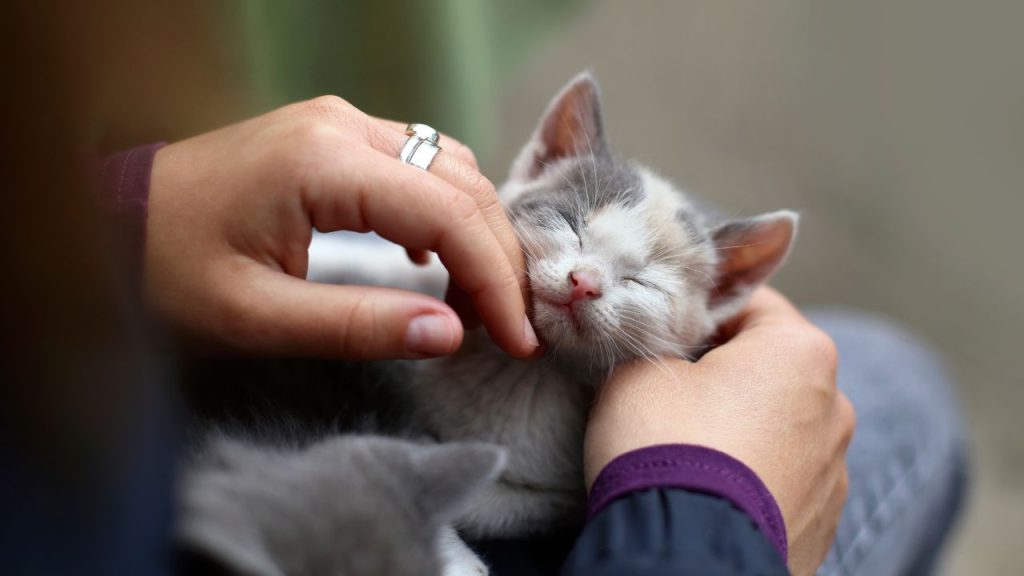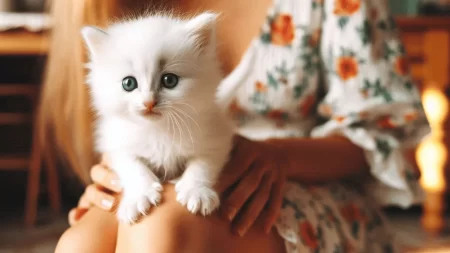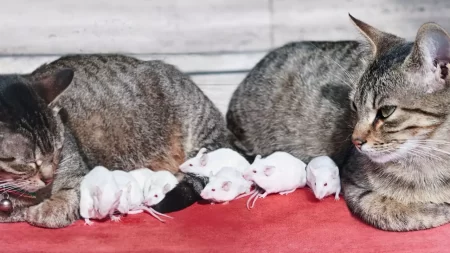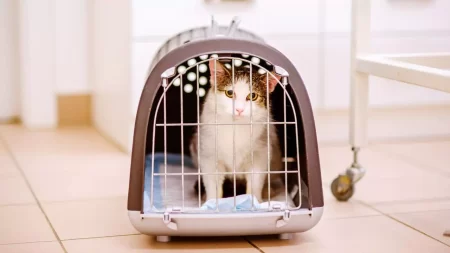Confused by your cat’s strange behavior? Biting you after headbutting? You’re not the only one. It’s a common issue. But why? Get the answers here! We’ll look into why cats do this and how you can help shift it.
Cats are complex creatures. They show affection one moment and then bite the next. Why? Headbutting and biting can both be a way of spreading their scent. Or they might be trying to communicate something. To respond to your cat the right way, you need to know why they’re doing it.
Here’s more info on headbutting and biting. Plus, tips on how to handle each situation:
What Is Headbutting?
Cats headbutt things or people to spread their scent, mark their territory, and identify themselves. It’s also a way to show affection, like purring and rubbing. They do it with enthusiasm, to leave behind as much of their scent as possible.
Cats may also use headbutting to communicate and show friendliness. If your cat headbutts you and then bites you, it could be because they are too excited about scent-marking or trying to communicate something.
Why Do Cats Headbutt?
Cats have various ways of expressing affection, like headbutting. This is also called “bunting“. It’s a bit like a cat-style hug, where they rub their forehead against another person or thing. Cats are known to be territorial, so headbutting is their way of marking their territory with the scent glands on their heads.
So, when your cat headbutts you, it’s because they’re spreading their love – in the form of scent – that says ‘This human is mine!’
Headbutting can also mean cats are trying to communicate something. It could be anything – your attention and affection, food, or even wanting to go outside. Pay attention, as cats won’t stop headbutting until they feel heard!
When cats feel particularly playful, they may give little headbutt bites. This is an invitation for you to join in the game. Look out for these behaviors – they all mean your cat wants attention and love.
Reasons Cats Headbutt and Then Bite
Cat headbutting, or bunting and allorubbing is a way cats show affection. However, sometimes they may follow up with a bite or scratch.
There are several reasons why your cat may be headbutting and then biting. If they’re trying to spread their scent, it can lead to nipping or biting. This can happen if there’s stress or anxiety from other cats around. Cats may also be sending a warning sign that they want to be left alone.
If this happens consistently, take a break from the situation and move away from the cause. They may not appreciate certain types of touch. Never punish the cat for this behavior, as it can do more harm than good. Positive reward-based training techniques can help manage the behavior. Consulting a qualified animal behavior professional may also be beneficial.
What Does Headbutting Mean?
Headbutting, also known as bunting, is a behavior cats use on other cats and humans. By doing this, they’re releasing scents that are trapped in the glands around their face and neck. This is how cats can mark things as their own.
They might rub their heads against you or your clothing too. Sometimes, this headbutting is a sign of affection, not territorial marking. Cats may do this to get your attention or show they enjoy your presence. If they start biting after they headbutt, it’s either because they’re getting too excited or trying to communicate something else to you, like discomfort or wanting more attention.
Understanding Your Cat’s Behaviour
Headbutting, also known as bunting, is familiar to cat owners. Though it can happen randomly, understanding why cats do this helps us better connect with them and make sure they’re happy.
Cats in the wild spread their scent by rubbing faces or heads on objects or other cats during social interactions. When your cat headbutts or rubs against you, they’re probably either spreading its scent or trying to communicate something.
The follow-up bite after headbutting may surprise owners since cats are non-aggressive. Any aggression is usually associated with pain, fear, or frustration. The bite could be playful aggression (“play biting”). Play-biting happens when cats get excited during playtime and release energy through nips that don’t hurt, like a feline hug.
Understanding why cats exhibit certain behaviors is key to helping them have a full and happy life as pets. Talk with other pet owners or consult a vet for advice on calming techniques that are suitable for both. Knowing more about why your kitty does certain things will strengthen the bond between you and your furry companion!
How To Stop Your Cat From Headbutting and Biting
Cats often headbutt and bite to spread their scent, a behavior known as ‘bunting’. This can lead to unintentional biting. Cats may also nip or bite to communicate something. It could be fear or a request for long hugs to stop.
To prevent the behavior, redirect your cat’s attention to something else like a toy or puzzle feeder. Provide your cat with places inside and outside of the home to relax. Lastly, spend quality time with your cat through playtime or cuddles, so they can get used to being around you without feeling overwhelmed.
Conclusion
In conclusion, headbutting and biting is a common thing among cats. It’s an instinctive way to spread scent or show affection. Other theories are marking and communication with chirps or yowls. Remember, headbutting and biting are signs of love and acceptance. Your cat is either too eager to spread their scent, or they’re trying to tell you something!







